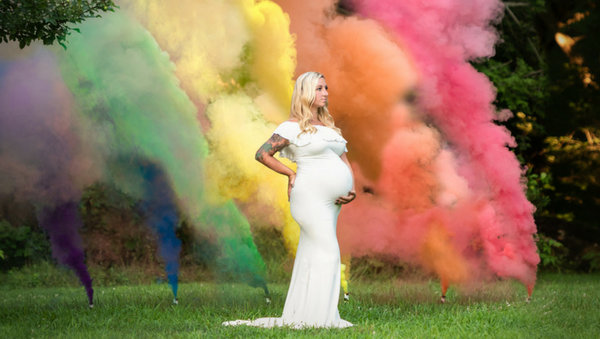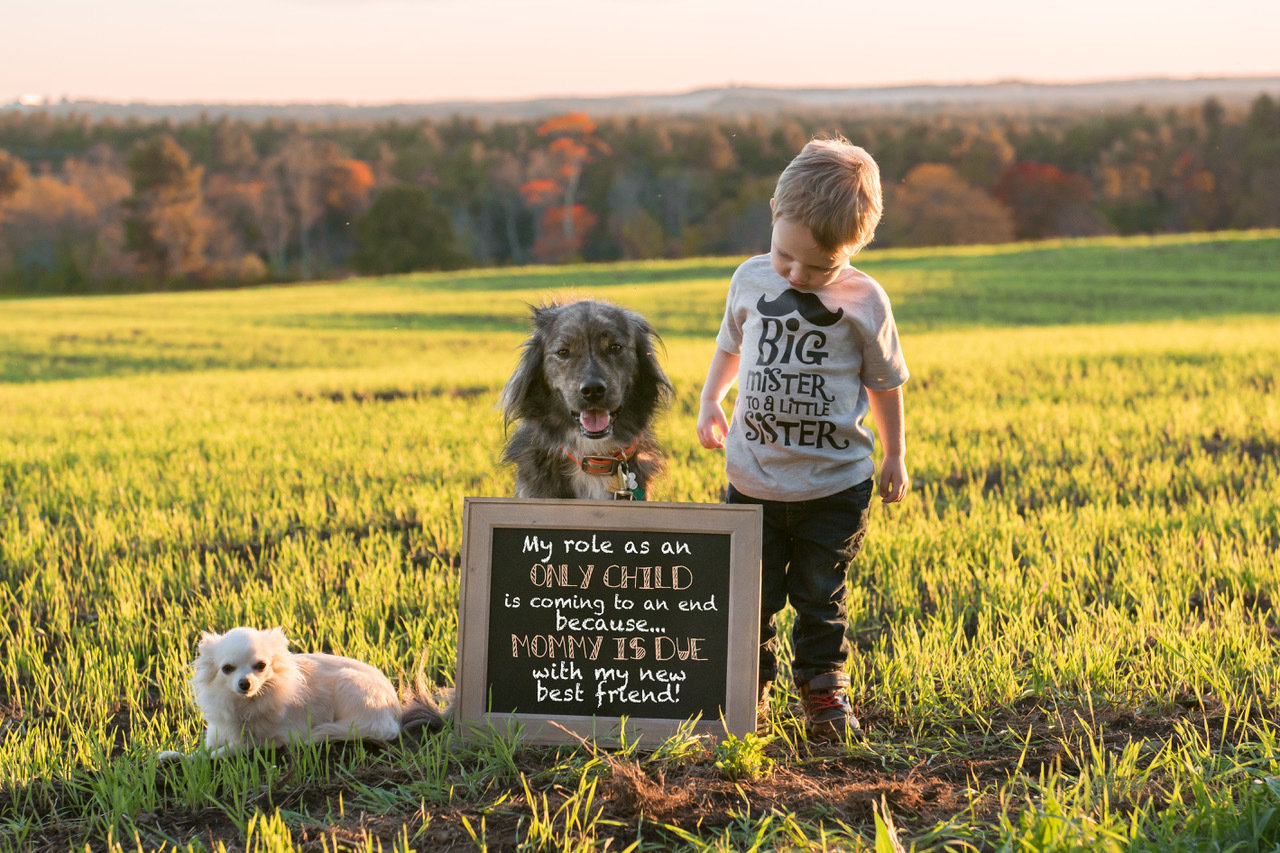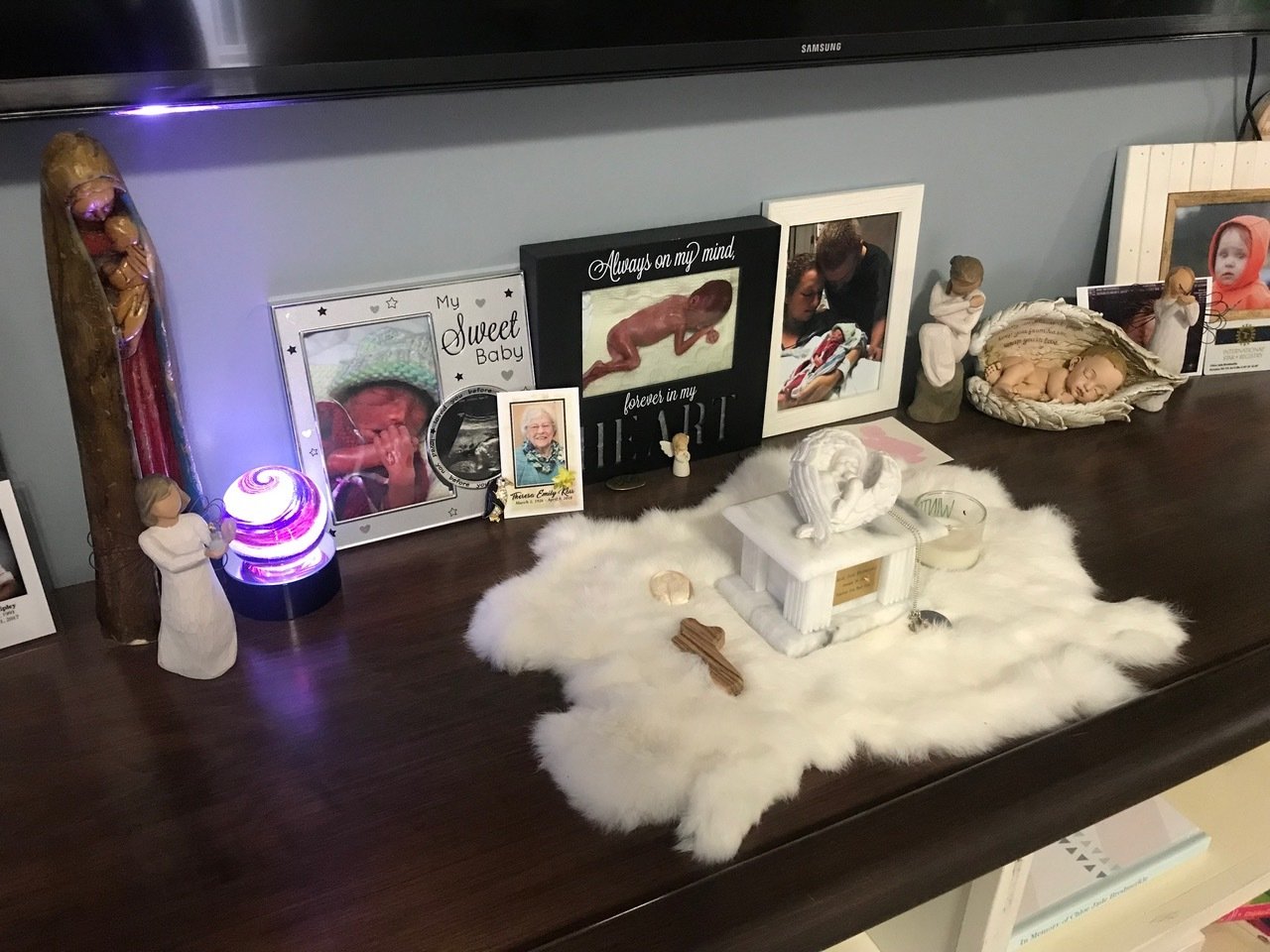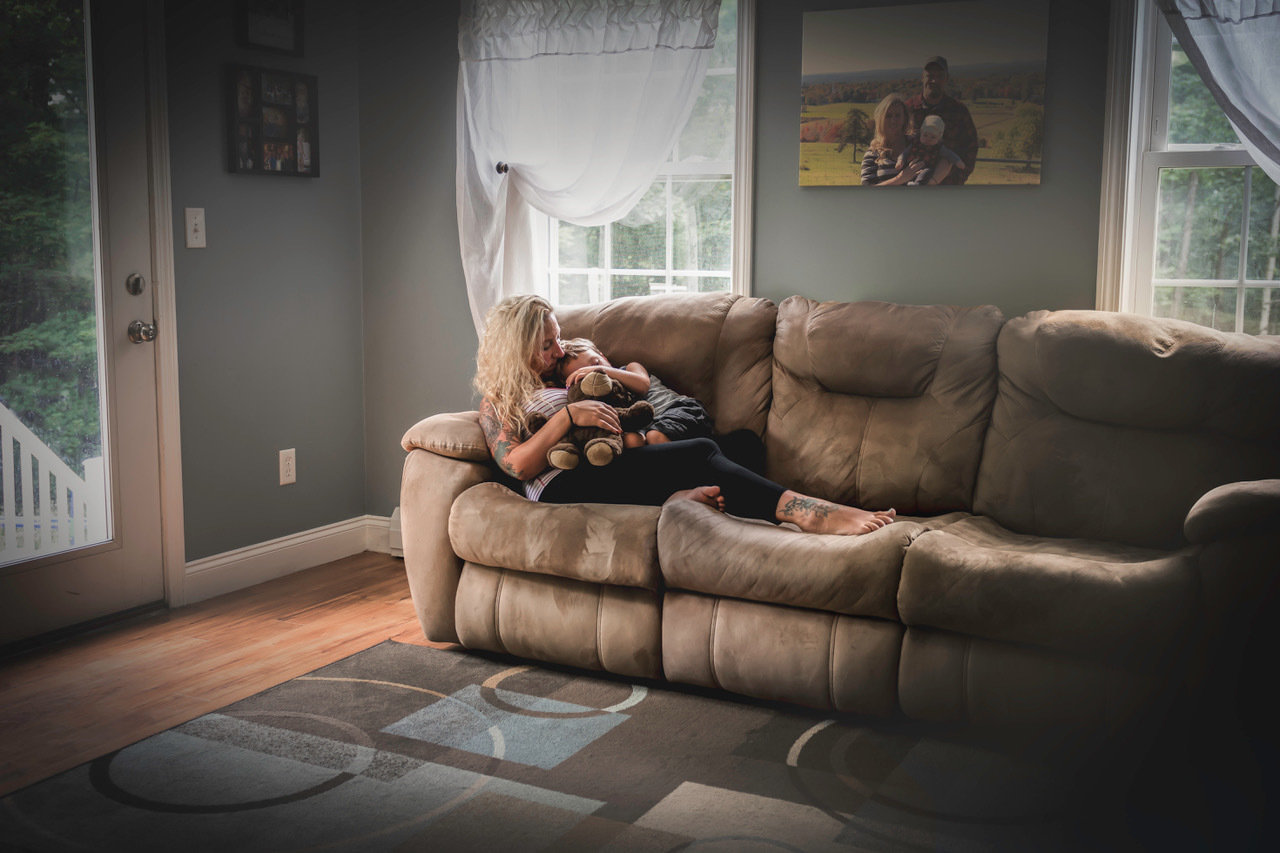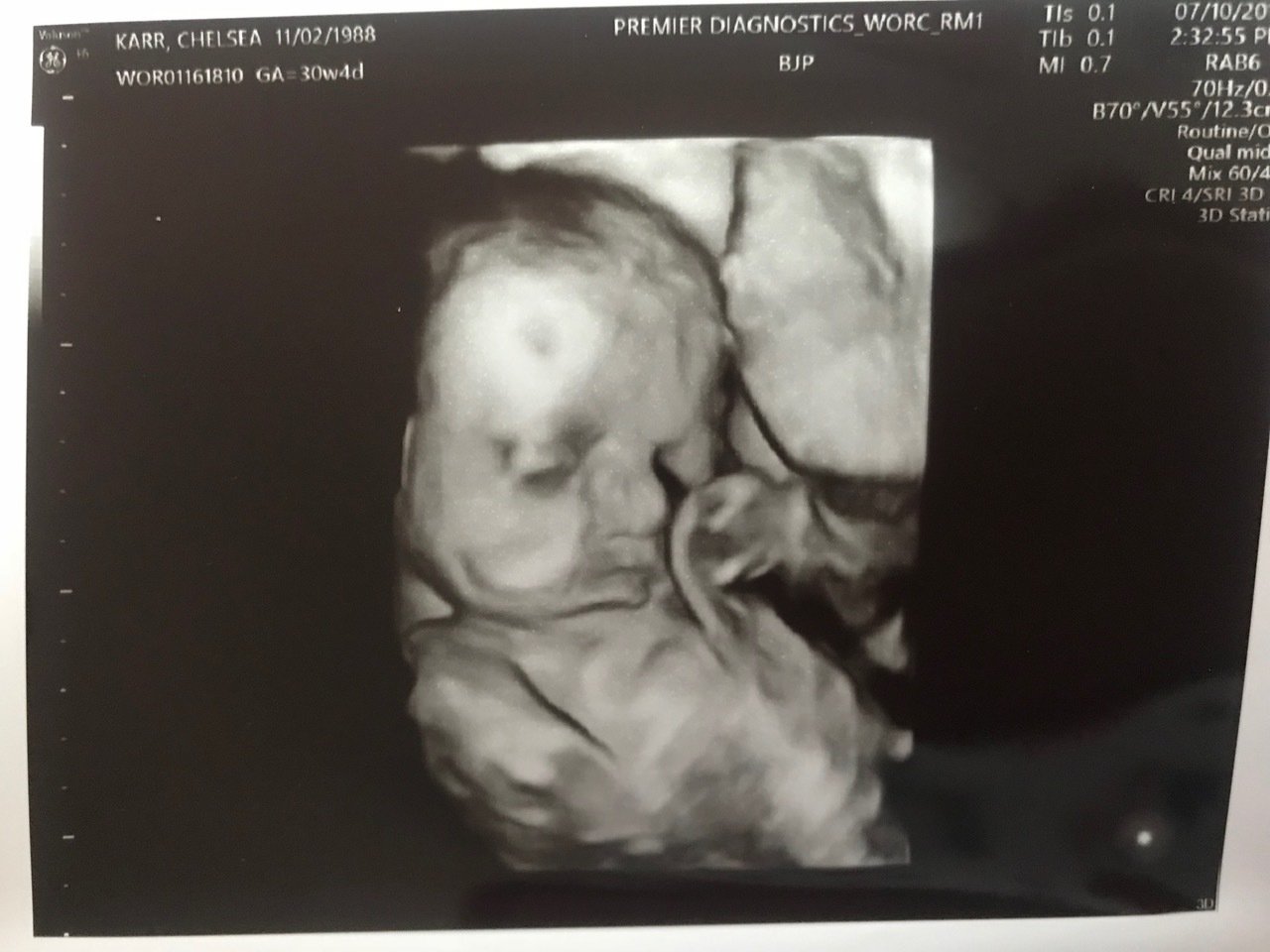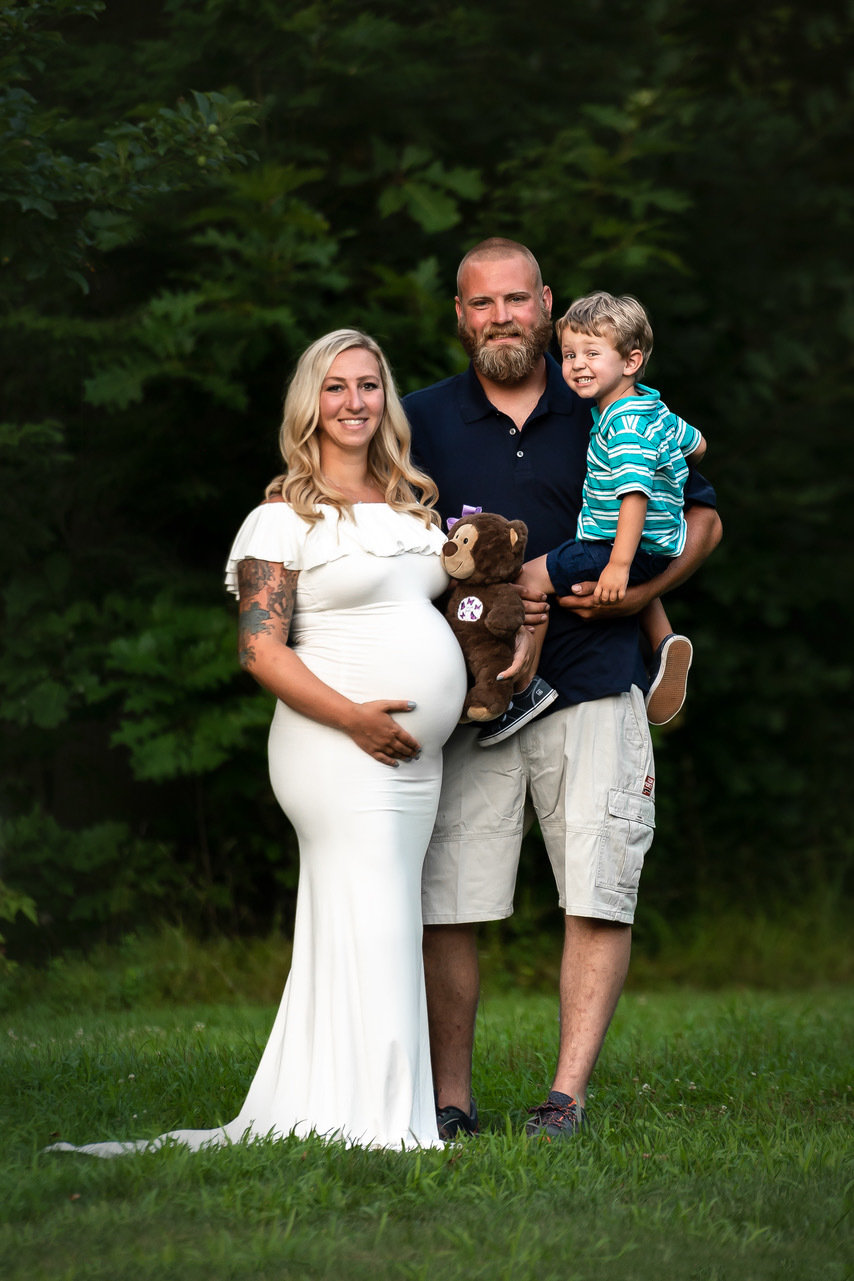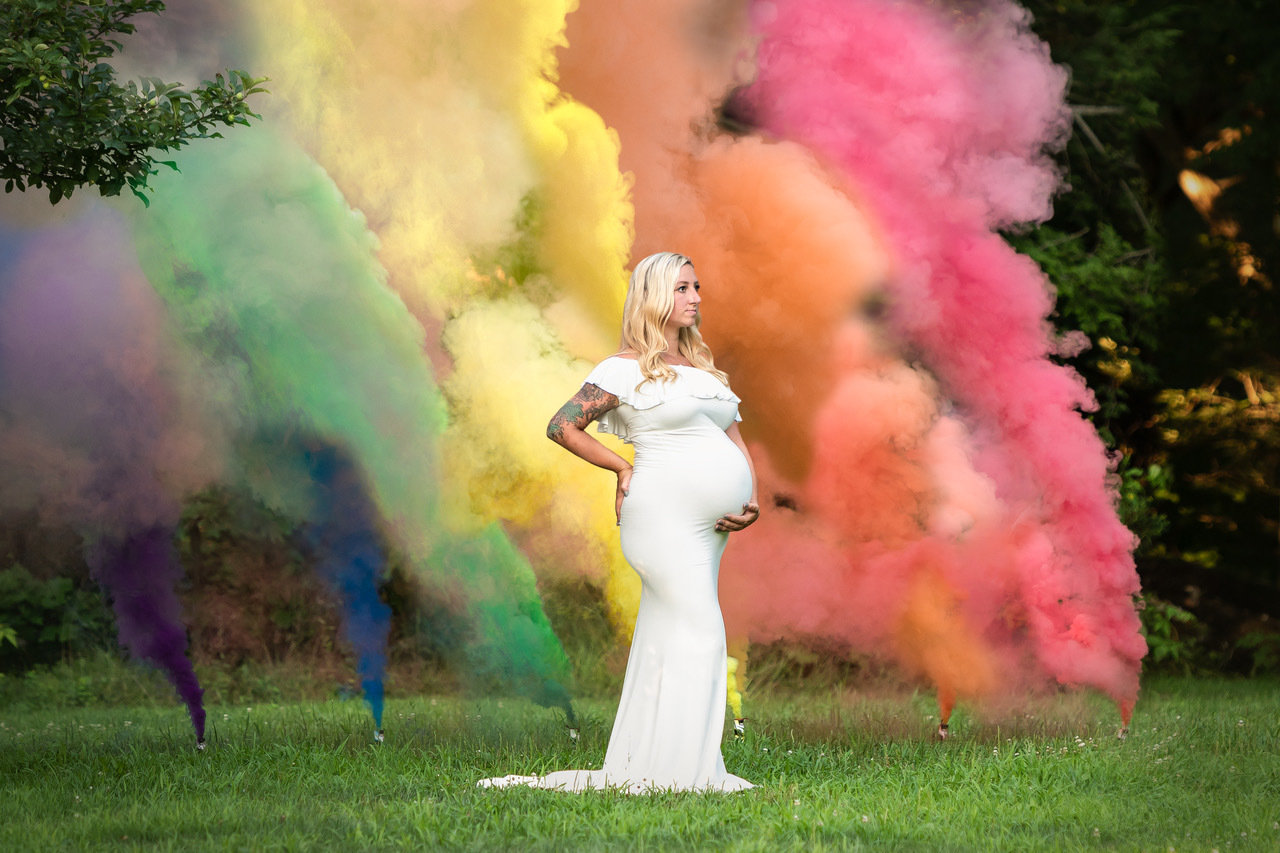The couple decided to wait until their 20-week scan before announcing to friends and family the happy news just to be safe. Besides, an earlier NT scan and hormone test reveled that Chelsea had “low PAPP-A, which is a hormone produced by your placenta” and they didn’t want to jinx anything.
“It was terrifying especially since there is so little known about this and could mean so many things, or nothing at all,” she says. “The main concern was the results meant my baby was high risk for trisomy 18, or Edwards syndrome.”
But Chelsea and Hollis received happier news at their next checkup. “She was growing perfectly, and I also got blood tests done showing she did not have trisomy 18,” she says. At 22 weeks, they finally decided that they were in the safe zone to reveal their pregnancy on social media. “Everything was going amazingly,” Chelsea recalls.
Chelsea called her doctor and they told her to come in. “I checked her heartbeat before I left and found it but noticed it was slower than normal. But it was still there,” she says.
But unfortunately, the news at the hospital was grim. After doctors ran some tests on her, the nurse came in with the heartbreaking news: “She then said the worst five words ever said to me in my life,” Chelsea says, “‘They couldn’t find a heartbeat.’ That sentence, and her face when she said it, is forever engraved in my brain.”
Karr had suffered “a concealed placental abruption” a condition that the Mayo Clinic describes as “when the placenta partially or completely separates from the inner wall of the uterus before delivery. This can decrease or block the baby’s supply of oxygen and nutrients and cause heavy bleeding in the mother.” Karr’s daughter had died from the condition, but that didn’t mean that Karr’s tragedy was over.
The mom had to deliver her daughter, whom she named Chloe Jade, at 3:20 in the morning and experience childbirth, even though her daughter was no longer living. “I was pissed, sad, and hatred for myself filled my body for failing the one thing I, as a woman, was supposed to do,” she remembers.
Karr’s heart was shattered, but she would soon learn that her loss would be met with new hope.
So they were more cautious this time. Karr made biweekly appointments with her doctor’s office and started a regimen of baby aspirin and blood thinner injection to counter the effects of her FVL.
“I was taking all the precautions I could, but it still barely made a dent in the anxiety and stress,” she remembers.
Then came Valentine’s Day 2018. Karr was two months pregnant with her son and here was the due date of the child she had lost. “All I wanted to do was crawl in a ball and cry,” Karr remembers. “All I could think about is what she would have looked like as a full-term baby, what would she weigh? How tall would she be? Questions I will never have answered about my own child.”
Karr had another NT scan and blood work, which revealed that she again had low PAPP-A like she did with her last pregnancy. “Learning that put even a further distance between me and this baby. It sounds horrible to say, but I was so numb to this pregnancy. I didn’t want to build a bond because I just knew something was going to go wrong,” she says.
The only thing that helped was when she learned that her new baby was a boy. It was the slightest difference that allowed to her to have hope that this pregnancy might not end in tears.
Still, Karr says she started having Post-Traumatic Stress Disorder symptoms at night around the 24-week mark. Her doctors assured her that she could come in daily if it would help her feel better, but despite their encouragement, she explains that the experience was incredibly lonely.
She says that she “lives with fears that people will think I’m ‘replacing’ Chloe, or people will call me a mother of two.”
“I know once I have my baby in my arms I will bond so much with him,” she says, “but right now it’s so hard when I feel like he is safer on the outside than in my belly.”
“It was stressful and a little chaotic, but that’s exactly how this pregnancy has been,” she explains.
Karr still goes to her biweekly doctors appointments and still stresses about her growing son, but she knows that there is a light at the end of her tunnel. “In just five weeks or less, I will have my rainbow baby boy,” she says.
But that also doesn’t mean she will forget the daughter that she lost. “Even after this baby comes, I will always celebrate my daughter,” she says. And although this mom might never forget her daughter, the experience has taught her the hardest lessons to learn.
“What I have learned is there is no same way to grieve,” she says. “Never tell a mother how she is grieving her child is the wrong way. You never ‘move on,’ or ‘get over it.’ You simply learn how to cope.”
